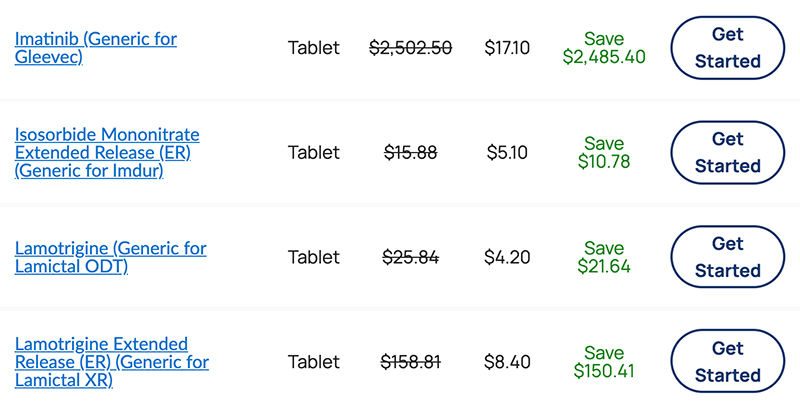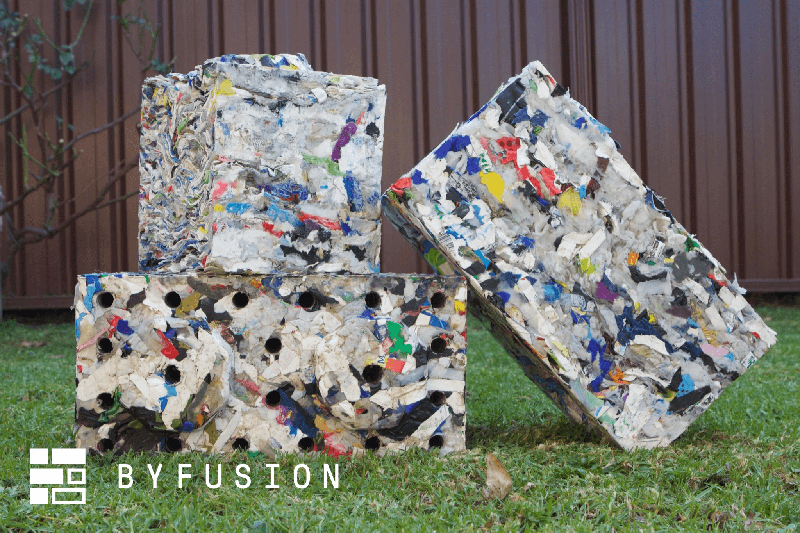Volcanoes are erupting in The Philippines, but on-fire Australia received some welcome rain. The Iran war cries have been called off and The Donald’s military powers are about to be hamstrung by the Senate. Meanwhile, his impeachment trial is starting, and we’re all on Twitter for a front-row seat.
What Could Go Right? Lowering outrageous drug prices
Plus, a just-discovered coral reef untouched by climate change, a zero-waste way to use nonrecyclable plastic, and more
This is our weekly newsletter, What Could Go Right? Sign up here to receive it in your inbox every Thursday at 6am ET. You can read past issues here.
Innovating our way to better healthcare
American billionaire Mark Cuban, whom you may know from the TV investing show Shark Tank or as the owner of the basketball team the Dallas Mavericks, has opened an online pharmacy called the Mark Cuban Cost Plus Drug Company (MCCPDC). The business model is in the name: the pharmacy sells drugs at their cost, plus a 15% markup and a $3 pharmacy fee. Shipping is $5.
The store doesn’t take insurance, but depending on your plan and which medication you need, the prices on the site may be lower than what you would pay through insurance, anyway. (You still need a prescription to order.) Based on our own perusal and personal experiences, the prices seem similar to what you would pay out of pocket with a high-quality American insurance plan and to European drug prices without insurance. The site could be a great boon for the un- and underinsured. Indeed, if you’re looking for some free smiles this morning, take a ride down Cuban’s Twitter feed for heartwarming stories of folks finding their medications on the cheap. There are over 100 medications currently available on the site, and Cuban wrote on Twitter that they are “adding more as soon as possible.” The company is also building a plant in Dallas, Texas so they can start selling injectables like insulin.
Even if you don’t end up as a customer, seeing the markup of these drugs, which the site lists along with their own price, is fascinating. As a communications tactic for putting the issue front and center, it’s simple and effective. What is the reason why Gleevec, an oral chemotherapy drug, is sold for $2,500 at pharmacies when it costs $12 to produce a package of 30 tablets?

“There are numerous bad actors in the pharmaceutical supply chain preventing patients from getting affordable medicines,” Alex Oshmyansky, CEO of MCCPDC, said in a press release.
We get that billionaires solving public health issues may not be the ideal solution for lowering drug prices. But this business has moved faster than politics, and its success may very well result in broader change, especially if it ignites and funnels public outrage to the right targets. “Our challenge is to keep pushing prices lower,” Cuban told TechCrunch. “Our KPI is how much we can reduce the stress of our patients who buy generic meds.”
Solving our plastic problem, and a till-now undiscovered coral reef
So much plastic, so little to do with it. Fast Company has a neat write-up of the company ByFusion, whose machines convert nonrecyclable plastic into building blocks that can be used for everything from retaining walls to bus stops. The process requires no sorting, no cleaning, and works for every type of plastic except for Styrofoam. “And because the plastic isn’t melted but fused,” the article says, “it doesn’t require an ounce of adhesive, glue, or mortar. As a result, the process yields no waste whatsoever: 22 pounds of plastic makes a 22-pound block.”

ByFusion’s footprint is small to date, but their goal is to recycle 100 million tons of plastic by 2030, which according to Fast Company is a quarter of the United States’ annual plastic production.
We’re keeping an eye on next month’s United Nations (UN) negotiations for a world treaty on plastic pollution. Major brands like Coca-Cola and Unilever are in support. And while our addiction to plastic wrap is new, some ideas for replacing it (with additional ones in the comments) are quite old.
In Europe, electric cars outsold diesel for the first time ever. Plus, more research that electric vehicles (EVs) are the better environmental choice: EVs’ indirect emissions from electricity and battery production “pale in comparison” to diesel cars’, says a Yale University study.
In November, scientists found a two-mile coral reef near Tahiti that they had no idea existed. Spanning acres, the reef is completely untouched by the climate crisis and suggests that there are more coral reefs out there, possibly thriving, at depths humans have not yet been able to map. “For once, it’s a positive story about coral reefs in the news, which is quite rare these days,” UNESCO head of marine policy Julian Barbiere told CNN. Click the link above for beautiful photos of the reef or below for a video. Meanwhile, for the many, shallower coral reefs that have been bleached due to rising ocean temperatures, scientists are figuring out protective strategies, from gene editing to probiotics.
When regulating works
Papua New Guinea has become the 111th country in the world to repeal the death penalty. Their history with it is an interesting one: first abolished in 1970, it was reintroduced in 1991, although no inmates have been executed since then, in part because the country did not have the methods “to conduct executions humanely,” according to the Death Penalty Information Center. Moving away from capital punishment is a global trend. Sierra Leone became country number 110 to abolish capital punishment over the summer, and 170 of the 193 UN member nations have either abolished it or do not carry out executions.
The British government introduced a bill to ban virginity repair surgery as an accompaniment to a ban on virginity tests. The surgery, hymenoplasty, which has no medical benefits, stitches together the hymen for “proof” of virginity on marriage nights. The final report from the expert panel, which was convened to provide direction for the bill, notes that “in many cases, requests for hymenoplasty are the direct result of family coercion.” In our view, illegality would relieve pressure on both the patient and the doctor, who may consider the procedure a protective mechanism against honor-based violence. Next up, then, is the longer and more complex task of uprooting the view that a woman’s worth lies in her purity.
Spain has regulated the cost of antigen tests to just under €3 after a price “spike” during the holidays led to €12 tests and public outcry. (Tell that to Newark Airport in New Jersey, where rapid tests were going for $250 a pop in late December.) Government regulation isn’t the only way to achieve low prices—the article mentions other European countries that have achieved under-€3 tests by selling them at supermarkets—but whatever the US is doing (anything?) ain’t working.
It’s not just us: progress is in the air
One of our hopes when we launched The Progress Network (TPN) was that conversations about progress would slowly become part of mainstream culture during a period of time when the zeitgeist was decidedly dire in mood. Lately we’ve noticed that the energy around this mission and others like it has become less like disconnected dots on a graph and more like a constellation of stars, a pattern viewable from a distance.
This week the environmental organization Breakthrough Institute announced “progress problems” as the theme of their next gathering, and a new think tank, Institute for Progress, launched, which focuses on policy research and advocacy to remove the bottlenecks to US growth. Jason Crawford, who has been writing about progress since 2017, turned his efforts, Roots of Progress, into a nonprofit organization this summer with the aim to create a new philosophy of progress for the 21st century. There is Reasons to Be Cheerful, a solutions journalism outfit founded by David Byrne of the Talking Heads, publishing since 2019, and the online magazine Works in Progress, publishing since 2020. (It’s worth noting that many of these projects are funded by similar people and places.) And there are many others—both editorial outposts like Vox’s Future Perfect and individuals who run progress-oriented projects and communities—who are active in the space.
No one knows whither this energy will go, but we love to see it expanding.
Before we go
Don’t tease us, Dr. Hans Kluge. The World Health Organization’s director for Europe said that natural immunity from the Omicron wave plus vaccination “offers plausible hope for stabilization and normalization.” Do you want the pandemic to end? DO YOU? Then we once again take this opportunity to remind you to get vaccinated and boosted. The more of us are vaxxed up, the less likely a new variant will arise and ruin things.
Lead poisoning affects large numbers of people. And while the issue is not popularly paid attention to, it is a tractable one. Our World In Data’s Hannah Ritchie on the progress the world has made reducing lead poisoning, and how we can continue it.
Americans are making Europe great again. TPN Member Parag Khanna has an excellent piece in TIME on a plan for the US to attract the best and brightest once more.
Pakistan’s first female Supreme Court judge was sworn in.
Below in the links section, delivery drivers gain rights, divorce gets easier, whales and rhinos bounce back, and more.
Bonus Podcast Episode: We Are the Outrage Machine

It’s no secret that social media is politically divisive. What we may not be as aware of is how our own behavior feeds into a positive feedback loop that leaves both sides progressively more outraged and more extreme in their beliefs. TPN Member Robert Wright, president of the Nonzero Foundation and a longtime journalist who writes about science, history, politics, and religion, discusses this phenomenon with TPN Executive Director Emma Varvaloucas and gives his best tips for how to avoid a civil war. This conversation was recorded before the 2020 presidential election. | Listen to the episode
Progress, Please
(Found good news? Tweet at us @progressntwrk or email.)
Other good stuff in the news
United States:
- Hospitals are testing ‘recharge rooms’ to help frontline workers avoid pandemic burnout | Popular Science
- Mayors see cryptocurrency as a way to address income inequality | Axios
- New York City delivery workers are now entitled to tip transparency and the right to use most restaurant bathrooms | The City
- How to claim the child tax credit this tax filing season | The 19th
- Indigenous news outlets are driving deeper coverage of Native American communities | AP
- The White House is distributing 400 million free N95 masks | The Washington Post
- Federal agencies are raising minimum wages for government employees to $15 an hour | Axios
- New Jersey has become the second state to mandate teaching Asian American and Pacific Islander history in schools | NBC News
- Georgia is closing its main maximum-security facility | WSAV News
International:
- Seven technologies to watch in 2022 | Nature
- A massive open index of scholarly papers has been launched | Nature
- Divorce in the rich world is getting less nasty | The Economist
- A hospital in Nepal is trialing a ‘life-changing’ leprosy treatment | The Guardian
- Heat pumps: How Norway popularized an ultra-sustainable heating method | Reasons to Be Cheerful
- Pakistan’s new women-led livestock market is changing attitudes | The Guardian
- A new owl-wing airfoil design can reduce noise pollution from aircraft and wind turbines | AIP Publishing
- Want drastic climate action? Maybe it’s time to sue the government | Reasons to Be Cheerful
- Is a more peaceful Middle East possible in 2022? | GZERO Media
- A Zambian park has reversed the national extinction of black rhinos | Reasons to Be Cheerful
- Global conservation efforts are saving humpback whales | Good Good Good
- A legal change in Spain is helping young, at-risk migrants get their first job contracts | El País
- Skateboarding schools, stores, and a diverse social scene have taken flight in Mexico City | The New York Times
- Uganda immunized more than 8 million children against polio | The East African (h/t Future Crunch)
- Canada will allow patients with severe mental illnesses to access psychedelic therapies | Calgary Herald
- A major British supermarket chain is eliminating “use by” dates on milk to reduce the amount going to waste unnecessarily | Treehugger
TPN Member originals ![]()
- To get to a ‘new normal,’ public health must focus on all respiratory viruses | Ezekiel J. Emanuel, Céline Gounder, and Rick A. Bright
- All it took to bring Washington together was… leaf blowers | James Fallows
- What the fate of Joe Biden’s presidency hinges on | Matthew Yglesias
- How cognitive empathy could have prevented the Ukraine crisis | Robert Wright
- We’ve lost the true meaning of cynicism | Arthur C. Brooks
- On the geopolitics of clean energy | Jason Bordoff
- Why you should stop worrying about “the way things used to be” | Jason Feifer
- Stay woke. The right can be illiberal, too | John McWhorter
- Historian and writer Ramachandra Guha on the crisis in India, the world’s largest democracy | Yascha Mounk
- American pessimism doesn’t extend to shorting the market | Tyler Cowen
Dive into our long list of the week’s progress links.
Upcoming Events
- Social Media on Campus: Advantageous, Addictive, or All of the Above? | Manu Meel | January 27
- ETH Global Lecture Series: The Middle Ages… again? | Parag Khanna | January 27
- The State In All Its States | Bobby Duffy | January 27
- America’s Public Forum: Virtue, Progress, and American Institutions Today | Steven Pinker & John Wood Jr. | February 3
- Moving Forward with Andrew Yang | Andrew Yang | February 3
- Breakthrough Dialogue 2022: Progress Problems | Ted Nordhaus | June 22–24
Until Next Time
Remember, “the line of progress is never straight.”



